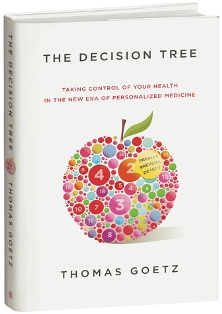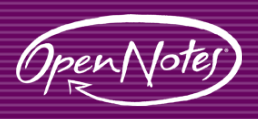October 10th, 2010 by Shantanu Nundy, M.D. in Better Health Network, Health Policy, Opinion, True Stories
No Comments »

The past two weeks I’ve been the “dayfloat” resident on the cardiology inpatient service. With the 30-hour-shift work “restrictions” placed on medical residents, there has been a need for new systems of care to ensure the safety of newly admitted patients and cardiology dayfloat is one of them. My job is to round with the post-call team, help them get out of the hospital on time, and then take care of their patients through the end of the work day. It’s a fairly easy rotation, as they go, though because I “float” from one team to another without patients of my own, it’s also not the most satisfying.
Towards the end of my two week rotation, I was paged by a nurse because a patient’s husband wanted an update on his wife’s condition. Glancing at my “signout” — a one-page synopsis of the patient’s presenting illness and hospital course — I learned that Mrs. FN (as I will call her) was admitted to the hospital for heart failure secondary to “medical noncompliance.” It appeared that she had not had any of her medications for well over a week, which likely precipitated the shortness of breath and fluid overload that led to her admission. On top of this, the patient had a number of “dietary indiscretions” including eating Chinese food, which likely only exacerbated her condition. Read more »
*This blog post was originally published at BeyondApples.Org*
September 16th, 2010 by Maria Gifford in Better Health Network, Health Tips, Interviews, News, True Stories
No Comments »
 As an invited media guest at Mayo Clinic’s Transform 2010 symposium earlier this week, I had the pleasure of interviewing presenter Thomas Goetz, Executive Editor of Wired Magazine and author of the new book, The Decision Tree: Taking Control of Your Health in the New Era of Personalized Medicine.
As an invited media guest at Mayo Clinic’s Transform 2010 symposium earlier this week, I had the pleasure of interviewing presenter Thomas Goetz, Executive Editor of Wired Magazine and author of the new book, The Decision Tree: Taking Control of Your Health in the New Era of Personalized Medicine.
Thomas writes about science, health, and medicine and believes that engaging people in their health and involving them as participants and decision makers leads to improving their behavior and their health outcomes. He knows there’s a technology emergence of cheaper, better tools that have the ability to offer people a way “in” — from self-tracking gadgets to online disease communities and beyond. Thomas is intrigued by the confluence of ideas and technology that make it an opportune time in healthcare.
 The Decision Tree is based on the premise that our health doesn’t happen all at once, but that it’s a consequence of years of choices — some large, some small, some wise, some poor. A decision tree, therefore, is a “device” that can help make it more obvious that these decisions are something we are actually choosing — a way to externalize the choices that we otherwise make without much thought.
The Decision Tree is based on the premise that our health doesn’t happen all at once, but that it’s a consequence of years of choices — some large, some small, some wise, some poor. A decision tree, therefore, is a “device” that can help make it more obvious that these decisions are something we are actually choosing — a way to externalize the choices that we otherwise make without much thought.
Maria: As executive editor of Wired Magazine, what brought you to write a book about consumer health?
Thomas: I come from a family of healthcare providers — my father is a doctor, my mother is a nurse — so it’s always been a topic area I’ve been comfortable with. A few years ago I felt that I had more to add, and wanted to get more specific in my training, so I got my masters in public health at UC Berkeley. That led me to recognize all sorts of commonalities between the worlds of information technology and public health. At the same time, technologists in Silicon Valley and elsewhere have recognized that healthcare is one of the last industries untouched, in many senses, by the IT revolution. It’s happening now, very quickly, and I wanted to be among the first to not only cover the business, but to cover the way these companies and services will change and improve our lives. Read more »
August 13th, 2010 by DavedeBronkart in Better Health Network, Health Policy, Opinion, True Stories
No Comments »

 Next in our series on my experience with OpenNotes, a project sponsored by the Robert Wood Johnson Foundation’s Pioneer Portfolio.
Next in our series on my experience with OpenNotes, a project sponsored by the Robert Wood Johnson Foundation’s Pioneer Portfolio.
This item has nothing to do with OpenNotes itself –- it’s what I’m seeing now that I’ve started accessing my doctor’s notes. In short, I see the clinical impact of not viewing my record as a shared working document.
Here’s the story.
______
In OpenNotes, patient participants can see the visit notes their primary physicians entered. Note “primary,” not specialists. I imagine they needed to keep the study design simple.
So here I am in the study, going through life. Five weeks ago I wrote my first realization: After the visit I’d forgotten something, so I logged in. Read more »
*This blog post was originally published at e-Patients.net*
July 26th, 2010 by StevenWilkinsMPH in Better Health Network, Health Policy, News, Opinion
1 Comment »

“Team care” has become a rallying cry for those who think the patient-centered medical home is bad for healthcare reform. Comments on a recent blog post in the New York Times provide a good example of this. When patients get sick, as the argument goes, they want to see their doctor — not some nurse or PA who they don’t know. I agree.
There are a whole bunch of things wrong with all the current focus on team care in the patient-centered medical home. Read more »
*This blog post was originally published at Mind The Gap*
July 12th, 2010 by AndrewSchorr in Better Health Network, Health Policy, News, Opinion, Research
No Comments »

They have a tough job, those government doctors, scientists, and bureaucrats who are charged with assessing the safety and effectiveness of proposed new medical products. As you know, they rely largely on studies presented by the applicants.
The Food and Drug Administration (FDA) has the power to not approve a new drug or product or even pull it off the market. Right now it is considering limiting or pulling GlaxoSmithKline’s (GSK) diabetes drug, Avandia, because of newly discovered data that it may have caused heart attack in some patients –- data mysteriously not shown in GSK’s own studies. If the drug is pulled it will cost GSK billions of dollars in lost revenue but, from the FDA’s point-of-view, it will be protecting the public. And, after all, there are safer diabetes drugs on the market as alternatives. Read more »
*This blog post was originally published at Andrew's Blog*



 As an invited media guest at Mayo Clinic’s
As an invited media guest at Mayo Clinic’s  The Decision Tree is based on the premise that our health doesn’t happen all at once, but that it’s a consequence of years of choices — some large, some small, some wise, some poor. A decision tree, therefore, is a “device” that can help make it more obvious that these decisions are something we are actually choosing — a way to externalize the choices that we otherwise make without much thought.
The Decision Tree is based on the premise that our health doesn’t happen all at once, but that it’s a consequence of years of choices — some large, some small, some wise, some poor. A decision tree, therefore, is a “device” that can help make it more obvious that these decisions are something we are actually choosing — a way to externalize the choices that we otherwise make without much thought. 













